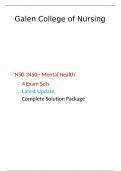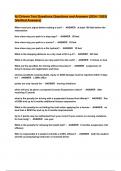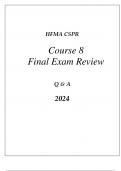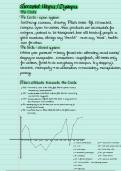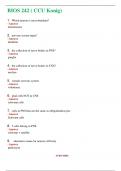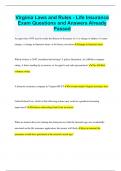Exam (elaborations)
NSG 3450 - Mental Health Exam Complete Testbank Latest Update 2024/2025- Galen
- Course
- NSG 3450 (NSG3450)
- Institution
- Galen College Of Nursing
NSG 3450 - Mental Health Exam Complete Testbank Latest Update 2024/2025- Galen
[Show more]
